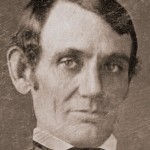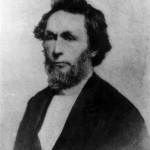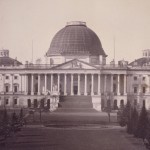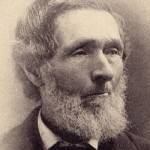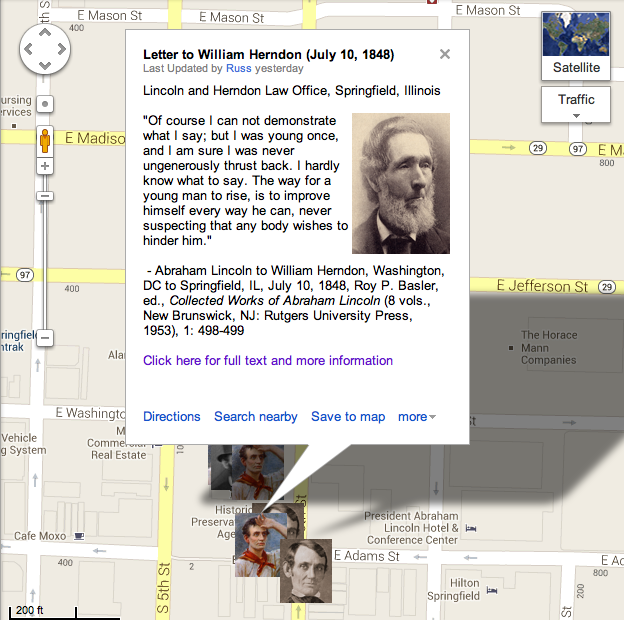Ranking
#22 on the list of 150 Most Teachable Lincoln Documents
Annotated Transcript
Context. In this letter to his law partner written from Washington, Congressman Lincoln offered advice about how to get ahead. William H. Herndon was about a decade younger than Abraham Lincoln. Both were members of the Whig Party and had been active in politics around Springfield, Illinois. Responding to some complaints from Herndon about how older, more established figures in their party were holding back the younger, aspiring politicians, Lincoln identified himself as one of the “old men” and suggested to his friend that he stop blaming others. “The way for a young man to rise,” Lincoln wrote, “is to improve himself every way he can.” (By Matthew Pinsker)
“I suppose I am now one of the old men….”
Audio Version
On This Date
HD Daily Report, July 10, 1848
Image Gallery
- Lincoln in 1846
- William Herndon (age 57)
- U.S. Capitol 1846
- Herndon as older man
Close Readings
Matthew Pinsker: Understanding Lincoln: Letter to William Herndon (1848) from The Gilder Lehrman Institute on Vimeo.
Custom Map
Other Primary Sources
Letter from Abraham Lincoln to William Herndon, June 22, 1848
How Historians Interpret
“After Congress adjourned on August 14, Lincoln remained for nearly a month in Washington, helping the Whig Executive Committee of Congress organize the national campaign. He corresponded with several party leaders, who reported encouraging news, and he sent out thousands of copies of speeches by himself and other Whigs. Like a benign mentor, he urged young Whigs in Sangamon County to take an active role in the campaign and not passively look for instructions from their elders. ‘you must not wait to be brought forward by the older men,’ he told William Herndon. ‘For instance do you suppose that I should ever have got into notice if I had waited to be hunted up and pushed forward by older men. You young men get together and form a Rough & Ready club, and have regular meetings and speeches.’ When Herndon complained that the older Whigs were discriminating against the younger ones, Lincoln responded with paternal wisdom, urging him not to wallow in jealousy, suspicion, or a feeling of victimhood:”

